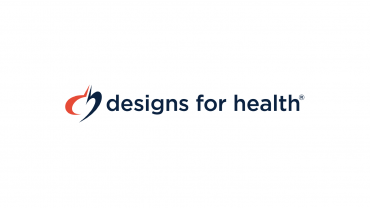
In recent days a small, preclinical study by Maric T et al.,2022 has gained a lot of media attention, due to claims that the study has found a potential link between supplementation with nicotinamide riboside (NR) and the risk of developing cancer and metastasis in immunocompromised mice inoculated with an aggressive type of breast cancer cells.
This, and any individual study’s findings, need to be considered alongside the totality of evidence available to date. This animal study alone cannot be used as a predictor of human reactions.
The form of NR used in the in-vitro study was stated to be NR chloride salt, which was shown to have an enhanced uptake by cancer cells. As cancer cells tend to have a higher metabolic activity, it is not surprising they have a higher demand of mitochondrial cofactors such as NAD precursors. However, the in-vitro application of NR chloride salt may not represent what happens when this compound is taken orally where it is cleaved from the chloride ion in the gut during absorption and processed by the liver. It is not clear how the in-vitro concentration of NR chloride salt translates into oral NR doses.
The mouse diet in the Maric T. et al. 2022 study was high in carbohydrates (the standard chow "SAFE 150" contains 66% carbs from 72% cereals) and may have contributed to aggressive cancer development in mice that were already predisposed. Many types of tumors have been found to thrive on glucose, but less so on lower carbohydrate or ketogenic diets. NAD is a cofactor in glucose processing, so its effects on the metabolism of tumor cells greatly depend on the glucose/carbohydrate intake.
Higher doses than typical NR supplements used in the study by Maric T et al.,2022
The study used a mouse dose of 400 mg NR/kg body weight per day. This is considered equivalent to a human dose of 400 mg/12.3= 32.5 mg/kg body weight per day. For a 60 kg person, the 32.5 mg/kg body weight dose translates into approx. 2000 mg NR per day.
This is 6.6 x higher than the typically recommended dose of 300 mg/day for NR supplements.
The sample sizes were very small (groups of 10 v 9 and 11 vs 12 in the two experiments). The association with tumor prevalence is not statistically significant in this study, and the authors' usage of the term "significant" is misleading as a Chi-square test reveals a 0.52 p-value. The data are insufficient to support their conclusion that tumor prevalence was significantly increased with NR supplementation and extrapolation of their results to humans is not reasonable based on this data.
Furthermore, the press release stated false conclusions not consistent with the study findings, and omitted important contextual information.
NR has a long track record of safety, with regulatory acceptance for Niagen® NR achieved for supplements and foods in seven global markets, including the US, Canada, EU, Australia, New Zealand, Brazil and Turkey. Niagen has been safely studied to date in 21 published human clinical trials.
The goal of NR supplementation with 150-300mg NR daily is to normalize nicotinamide adenine dinucleotide (NAD) in the body corresponding to the amount present during youth, not to overdose. This strategy help mitigate age related decline in NAD levels which may be responsible for many detrimental age-related alterations in physiology.
Studies have shown an approximately 42% age-related decline in NAD levels for people in the 51-70 age range compared to those in the 30-50 age range, while it has also been demonstrated that 150-300 mg of NR daily was shown to raise NAD blood levels by 22-51%. (DFH NR white paper, images below). A very recent review titled "Emerging Role of Nicotinamide Riboside in Health and Diseases" also discusses numerous benefits of optimizing NAD levels in the body.
In conclusion, based on all facts present, we cannot conclude that the reported results from the Maric T. et al., 2022 study can be translated into concerns regarding supplementation with daily doses of 150-300 mg of NR in healthy subjects. Nutrient supplementation and hormonal replacement regimens for optimizing quality of life during aging are decided under different considerations compared to those during active cancer/cancer treatment and should always be based on clinical judgement in concordance with patient wishes.
For more information on the benefits of NR please read the Nicotinamide Riboside: A Unique Precursor for NAD+ Production and Metabolism white paper or refer to list of reference links further supporting the use of NR below.
*These statements have not been evaluated by the Food and Drug Administration. These products are not intended to diagnose, treat, cure, or prevent any disease